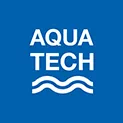The European Commission (EC) recently unveiled the European Sustainability Reporting Standards (ESRS), a comprehensive framework designed to guide companies in meeting the requirements of the Corporate Sustainability Reporting Directive (CSRD). In this article, we delve into the key features of the ESRS framework and examine its implications for water companies operating in Europe.
What is the ESRS?
From 1 January 2024, the ESRS came into effect, marking a pivotal shift towards comprehensive corporate sustainability reporting. This development requires large and listed businesses (except listed micro-enterprises) subject to the CSRD to disclose information on what they perceive to be opportunities and risks from social and environmental issues.
Who does the directive apply to? Large companies, SMEs listed on official EU markets, non-EU companies operating in the EU internal market and also SME's carrying out high-risk activities. For SMEs however, the standards are going to be less rigid.
The new rules have been designed to ensure that the information needed to assess companies' impacts is available for investors and other stakeholders. This will be to help investors assess financial risks.
Who does the directive apply to? Large companies, SMEs listed on official EU markets, non-EU companies operating in the EU internal market and also SME's carrying out high-risk activities. For SMEs however, the standards are going to be less rigid.
The new rules have been designed to ensure that the information needed to assess companies' impacts is available for investors and other stakeholders. This will be to help investors assess financial risks.
The key features of the ESRS
"The standards we have adopted are ambitious and are an important tool underpinning the EU's sustainable finance agenda," said Mairead McGuinness, commissioner for financial services, financial stability and capital markets union.
"They strike the right balance between limiting the burden on reporting companies while at the same time enabling companies to show the efforts they are making to meet the green deal agenda, and accordingly have access to sustainable finance."
The ESRS covers both 'financial' and 'impact' dimensions, and businesses must conduct materiality assessments for sustainability-related topics, reporting on matters material in either dimension.
ESRSs require comprehensive disclosures on material impacts, risks and opportunities across environmental, social and governance (ESG) topics. Businesses also face the challenge of reporting on new areas, such as biodiversity and the circular economy, after conducting materiality assessments.
"They strike the right balance between limiting the burden on reporting companies while at the same time enabling companies to show the efforts they are making to meet the green deal agenda, and accordingly have access to sustainable finance."
The ESRS covers both 'financial' and 'impact' dimensions, and businesses must conduct materiality assessments for sustainability-related topics, reporting on matters material in either dimension.
ESRSs require comprehensive disclosures on material impacts, risks and opportunities across environmental, social and governance (ESG) topics. Businesses also face the challenge of reporting on new areas, such as biodiversity and the circular economy, after conducting materiality assessments.
Transparency in governance structures
Businesses are obligated to transparently outline their governance structures addressing sustainability-related topics. The impact of sustainability key performance indicators (KPIs) on remuneration is highlighted, adding a layer of complexity.
Sustainability statements, including ESRS-required disclosures, must be prepared simultaneously with financial statements. Gathering data within the required timeframe poses a significant challenge for many companies.
ESRSs mandate companies to identify and report on impacts, risks, and opportunities throughout their value chain. Businesses need to adapt to this requirement, although data collection has been streamlined compared to the original drafts.
The rules state that disclosures will be subject to assurance, necessitating a clear audit trail and documentation of processes and controls.
Sustainability statements, including ESRS-required disclosures, must be prepared simultaneously with financial statements. Gathering data within the required timeframe poses a significant challenge for many companies.
ESRSs mandate companies to identify and report on impacts, risks, and opportunities throughout their value chain. Businesses need to adapt to this requirement, although data collection has been streamlined compared to the original drafts.
The rules state that disclosures will be subject to assurance, necessitating a clear audit trail and documentation of processes and controls.
What's included in the ESRS framework for water companies?
The ESRS framework comprises 12 standards, with water management being a central aspect. Businesses are obligated to report on various key elements related to water. These include:
● The total quantity of water used, providing insights into the impacts of business activities on water resources
● The total water recycled and reused, showcasing efforts towards water conservation and sustainability
● Identification of significant opportunities and risks associated with water dependency, emphasising a proactive approach to managing water-related challenges
● Water consumption in areas of high risk and water stress, addressing the geographic impact of operations on water resources
● Strategies implemented to prevent negative impacts and support broader EU water objectives, highlighting a commitment to sustainable water practices
● Changes in total water storage, reflecting the dynamic nature of water usage and storage within business operations
● Water consumption in relation to revenue (optional), offering an additional dimension to water reporting.
In a LinkedIn post Alejandro Sturniolo, VP of marketing and sustainability at water and wastewater treatment company H2O Innovation said: "This is great news for water. Some of the benefits include: enhanced compliance, not just efficiently managing water, but also contributing to its regeneration and improvement, positioning companies to meet and potentially exceed reporting standards, risk reduction from implementing sustainable water use practices to lessen vulnerability to shortages and other water-related challenges, supporting EU water objectives by creating a positive impact on the aquatic ecosystem and communities."
● The total quantity of water used, providing insights into the impacts of business activities on water resources
● The total water recycled and reused, showcasing efforts towards water conservation and sustainability
● Identification of significant opportunities and risks associated with water dependency, emphasising a proactive approach to managing water-related challenges
● Water consumption in areas of high risk and water stress, addressing the geographic impact of operations on water resources
● Strategies implemented to prevent negative impacts and support broader EU water objectives, highlighting a commitment to sustainable water practices
● Changes in total water storage, reflecting the dynamic nature of water usage and storage within business operations
● Water consumption in relation to revenue (optional), offering an additional dimension to water reporting.
In a LinkedIn post Alejandro Sturniolo, VP of marketing and sustainability at water and wastewater treatment company H2O Innovation said: "This is great news for water. Some of the benefits include: enhanced compliance, not just efficiently managing water, but also contributing to its regeneration and improvement, positioning companies to meet and potentially exceed reporting standards, risk reduction from implementing sustainable water use practices to lessen vulnerability to shortages and other water-related challenges, supporting EU water objectives by creating a positive impact on the aquatic ecosystem and communities."
Leading the way
There is no doubt that companies committed to being water positive, including such as Amazon Web Services, which Aquatech Online reported on last year, will be ahead of the curve.
A company is deemed to be "water positive" when it conserves and returns more water than it consumes to the environment. This can be accomplished through the use of efficient facility systems or repurposing products, among other methods.
Other companies that set out to be "water positive" by 2030 include Microsoft, Facebook and Google.
A company is deemed to be "water positive" when it conserves and returns more water than it consumes to the environment. This can be accomplished through the use of efficient facility systems or repurposing products, among other methods.
Other companies that set out to be "water positive" by 2030 include Microsoft, Facebook and Google.
The future
The ESRS ushers in a new era of corporate transparency. The ESRS framework strikes a balance, fostering ambitious sustainability goals while minimising reporting burdens, as highlighted by McGuinness.
For water companies, the 12 standards focusing on water management bring forth obligations, emphasising transparency on water usage, recycling efforts, and risk strategies.
For water companies, the 12 standards focusing on water management bring forth obligations, emphasising transparency on water usage, recycling efforts, and risk strategies.





